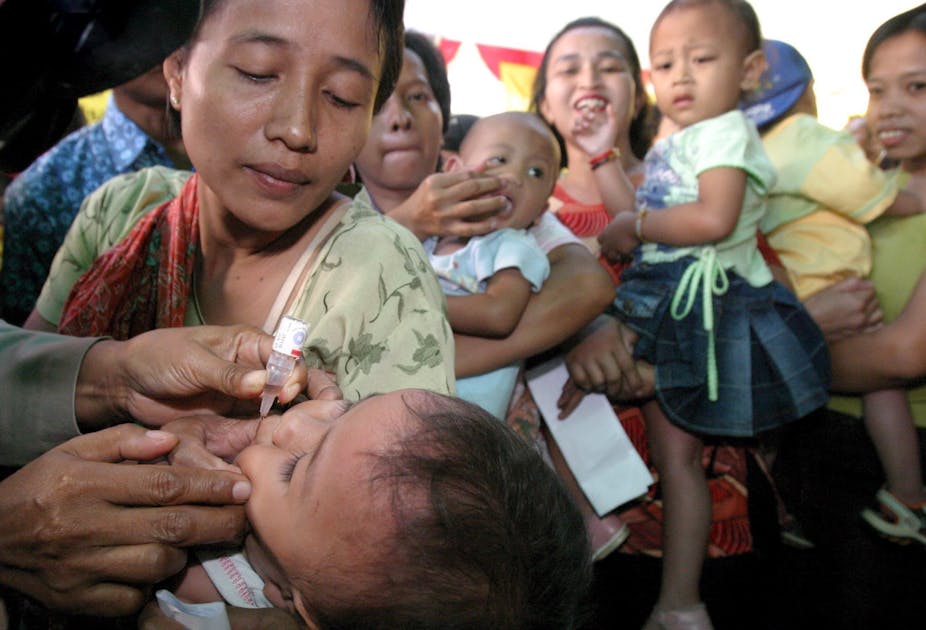The 2011 UN High-Level Meeting on Non-Communicable Disease (NCD) Prevention and Control marked an all-time high in the recognition of the devastating toll of the global NCD epidemic. But much remains to be done to start the long fight against these chronic diseases.
Unless governments and international institutions follow up with action to address the challenges these diseases pose, countries at all levels of development will soon be overwhelmed by the impact of NCDs. This can only be done effectively if and when these chronic diseases are adopted into mainstream national and global policy agendas, rather than just remaining on the health agenda.
NCDs – cardiovascular diseases, diabetes, cancers, and chronic respiratory disease – have a massive impact on individual and family hardship, productivity, and national economies. They’re already responsible for over 60% of the world’s mortality, (this number is expected to rise to 75% by 2030), and the World Economic Forum counts NCDs among the greatest global risks to business.
Anyone who has worked with NCDs (particularly in developing countries where loss of employment, treatment costs, or the premature death of a breadwinner can plunge whole families into intergenerational poverty), would have felt a sense of elation on hearing the calls for global action by UN member states at the meeting. But this joy should remain tempered with caution until we see further signs of commitment.
The meeting’s key output, the UN Political Declaration on NCDs, outlines the approaches to reducing the health and social consequences of these debilitating diseases. Most importantly, it carries a requirement for countries to develop and report back on national NCD plans to the UN General Assembly in 2014.
Why the fuss?
Non-communicable diseases are not only the principal cause of global mortality, they’re also responsible for the striking increase in mortality and morbidity in developing countries still grappling with infectious diseases. This “double disease burden” poses pressing questions for political leaders of developing nations about the organisation of health care (still very much oriented to acute care), allocation of scarce resources, and strategies for disease prevention and control.
Nowhere else in the world are the current global and national health policy challenges starker than in the Asia-Pacific region. This region is going through great and rapid, economic, social, political, cultural and demographic changes and emerging as the 21st century’s centre of world affairs.
Accompanying these fundamental changes is a modern health transition promising levels of life expectancy and population health only enjoyed by developed countries. But this will only be possible if the epidemic of NCDs is brought under control. And only if the influence of NCDs on reduced workforce participation, increased disability, and growing demand for pensions can be curbed, alongside health-care costs such as hospital beds, medications and visits to doctors and other health professionals.
That’s because health is not the only problem that NCDs create. Disability from diabetes-related amputations, kidney failure, blindness and chronic respiratory disease are responsible for untold human suffering, social disadvantage, and massive macroeconomic costs.
The 2011 UN Political Declaration indicates governments are well aware of the threat these diseases pose to sustainable development. But acting on this knowledge will require navigating some very difficult decisions and conflicting demands.
Steps in the right direction
There are signs that UN member states are serious about combating NCDs, such as last week’s World Health Assembly Resolution outlining the target for a 25% reduction of preventable death from NCDs by 2025.
All governments will now be obliged to collect data on diabetes and NCD deaths, and report regularly on progress to the United Nations. This mandatory target has the potential to drive significant action on heart disease, diabetes, cancer and chronic lung disease across all countries. This is cause for jubilation but still we must remain restrained as the task will be difficult, if not near impossible, for many countries.
We need to adopt a radically new approach to NCD prevention and control, and to global health more broadly. The causes of NCDs are rooted in the way we live, work, play and do business. Changing these will require rethinking our global and national financial systems and our goal of ever- increasing economic growth. Indeed, to deal with NCDs effectively, the world needs to first acknowledge their role in undermining the three pillars of sustainability – economic, environmental, and human or social development.
Much thought also needs to be given to the role the various components of the United Nations system will play in combating NCDs. And to the extent to which they will support or obstruct implementation of the spirit and intent of the Political Declaration.
Many questions remain about the role that international institutions can and would be willing to play in stopping the tsumani of chronic diseases – will the WHO, itself in the throes on reform be able to rise to the occasion? Will World Trade Organisation (WTO), World Bank and International Monetary Fund (IMF) policies help or exacerbate the problem?
Only if and when these important questions are satisfactorily answered can we start to expect relief from the onslaught of NCDs. But the inclusion of NCDs in the draft outcomes document for the June 2012 United Nations Conference for Sustainable Development (Rio + 20) is an excellent start. It shows that the world may yet be able to negotiate its way through this crisis by making NCDs a matter of mainstream policy.

